Will A.I. Change Work in 2023?
ChatGPT is just the start of things coming at us very, very quickly...
You’ll have been living in a cave if you missed the ChatGPT discourse over the last two weeks. Despite the frothiness of the press coverage, the product has only had one million registrations so there’s clearly a lot of people who’ve not let given it a go and if that includes you then there’s some suggestions of how to inspire yourself down the page. AI is going to start impacting our jobs as soon as next year.
There’s clearly layers to taking in the implications of AI like ChatGPT. Many people are initially impressed with its out of the box capability. For illustration I was chatting to a film student and we asked it to summarise the evolution of on-screen toxic masculinity, with particular comparison of Taxi Driver (1976) and The Joker (2019).
It’s a pretty impressive first draft of an essay and certainly leaves space for a human touch to add detail. By laying out a sharp summary of what it knows, the tool gives the impression of being smart. It’s why there are immediate implications for jobs that involve pattern recognition, like lawyers, accountants or - as this TikTok explains -doctors:
Click through to view if embed doesn’t work
But for most people, after being dazzled with the superficial sparkle of the AI’s work, the next layer of the onion is recognising that this first iteration of the tool isn’t actually as intelligent as it appears. The AI doesn’t know if its answers are right or wrong and isn’t checking its own homework with other sources. While it might make a decent stab at a critical appraisal of The Joker, ChatGPT’s answers are often strewn with errors that stand out a mile to an educated eye.
(More on ChatGPT as ‘a bullshitter’)
This is something that a as yet unreleased AI from Google is said to solve, checking itself for what it terms factual groundedness. Few businesses make the case for competition better than Google - its lack of serious rivals in search have made it glacial in its execution, a lumbering bureaucracy that has looked flat-footed whenever it does face new entrants in its markets. I worked for Google for 4 years and in my first three months got a drive in a driverless car (around a hotel car park in Watford). It was a brain-blending experience that had you imagining a reinvented future opening up right infront of us. But it was 16 years ago. What happened in those years I don’t know but the firm doesn’t seem hungry to prove a point. Similarly Google’s YouTube hadn’t created a video editing tool in its first 16 years of life before TikTok’s movie-crafting capabilities forced it to try harder last year. No business needs competition more than Google.
This TikTok explains an example use case that would threaten Google and force it to act quicker. First a user asks ChatGPT to write a menu plan for a week’s meals for a fussy eater, then asks for it to be turned it into a chart before finally asking the AI to write a shopping list to help shop for the menu list. To be really clear, this whole exercise takes less than a minute.
Click through if the embed doesn’t work.
The ad-saturated mess of Google search results suddenly look flabby when placed side-by-side with these customised and usable results from a ChatGPT query. And as said before, this is a prototype version.
While marketing writer Mark Ritson asserts that such new products don’t pose a threat to holding company Alphabet, ‘Google’s position as a dominant player in the tech industry is secure’, to my mind that’s misguided. It’s pretty evident that a product that suddenly delivers astonishingly good results could dislodge any incumbent on the back of customer satisfaction. The example of a young Google unseating Yahoo with it’s sleek efficiency two decades ago springs to mind.
Read more on how Google slept too long and allowed ChatGPT
There are clearly big implications for our jobs. One of the things that remote only firms like Automattic have talked about is the importance of the written word. They explain the necessity for modern workers to articulate something clearly in written language. Some of that is about expressing ideas clearly, but plenty of it is being able to take information and process into a clear summary. What are the main points? Here’s a clear application of these new tools - already someone has created a Chrome plugin that will use ChatGPT to summarise any document or article in seconds. And here’s an example:
One of the other AI products that Google has been working on is an AI that can write computer code. And it is a proudly average coder - results of the project published in Science this month suggests that it already beats about half of all human coders. The user instructs it to write an application and it gives the code. Clearly it will require a good deal of customisation to improve the user interface but the first part of the job is laid down.
One thing is clear, that after a long period when AI tools were being kept from widespread usage, the rabbit is now running and the dogs are in hot pursuit. From browser plugins to tools to summarise your latest Zoom call for those who missed it we shouldn’t surprised when AI is playing a significant role in our jobs by the middle of 2023.
Read more - all of these are dazzling use cases by Ethan Mollick:
Article: How to use AI to help generate ideas
Article: Some games to learn the capabilities of AI:
1) treat it like an all knowing intern (get it to summarise an article for you)
2) ask it to give you options


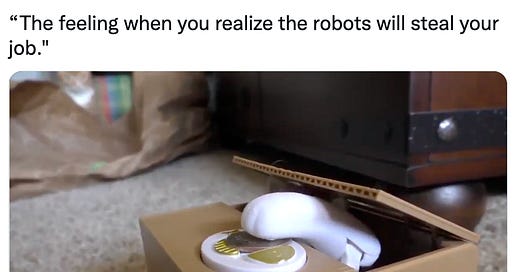


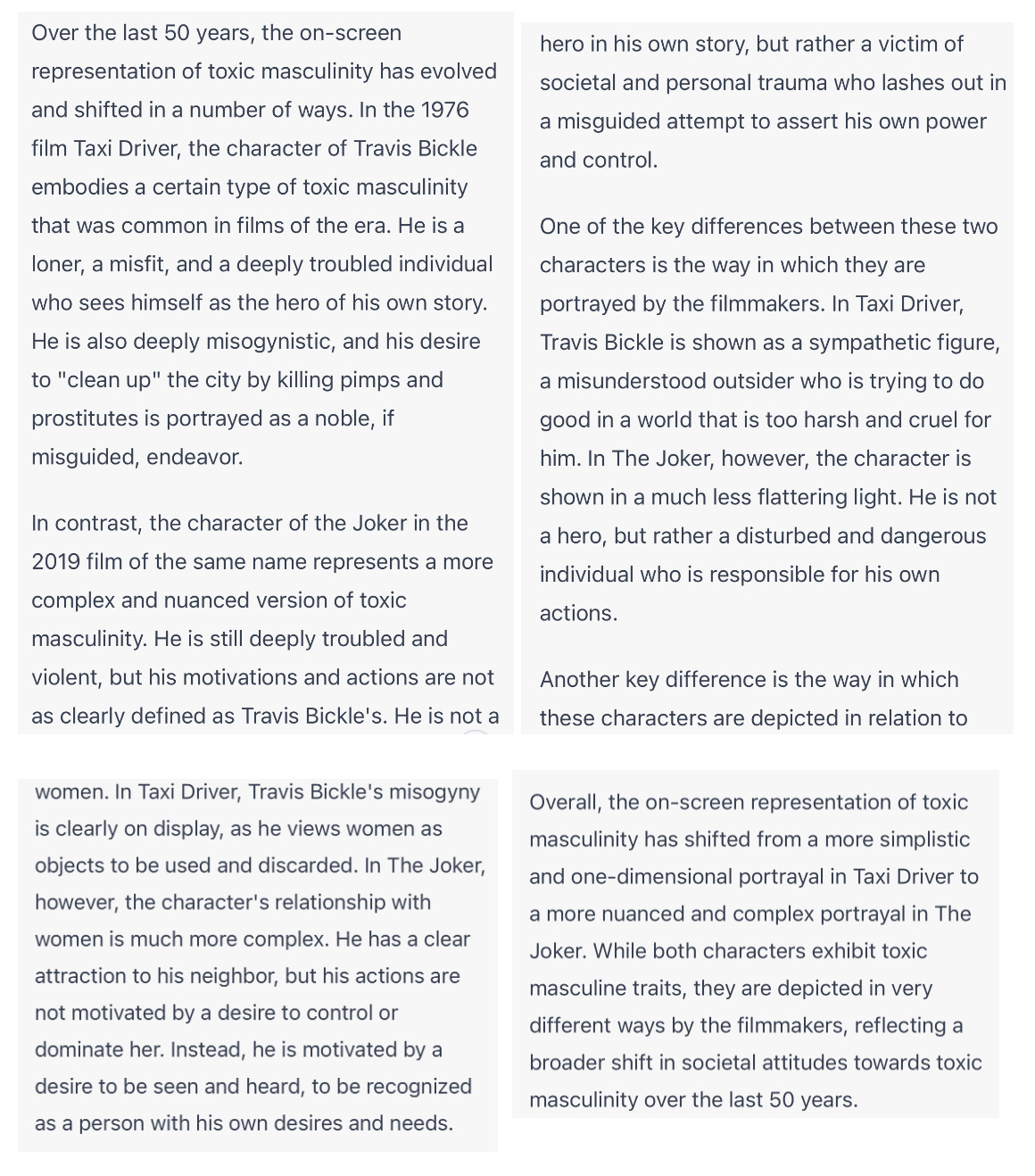

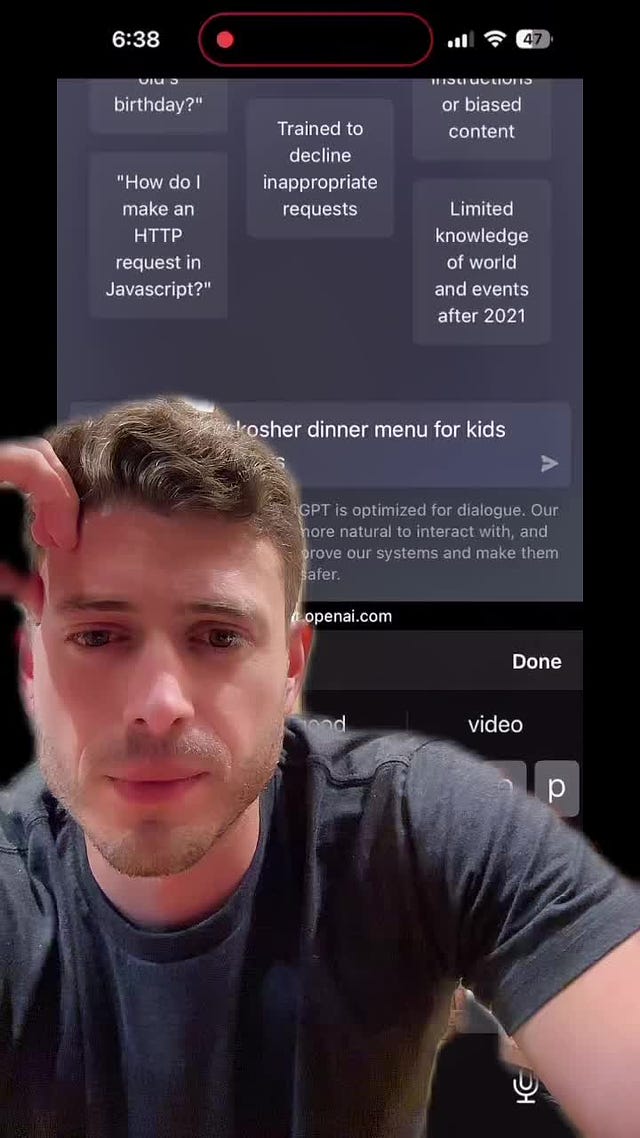


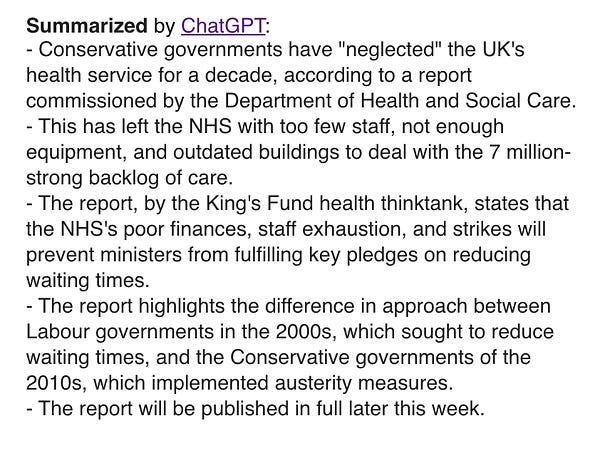

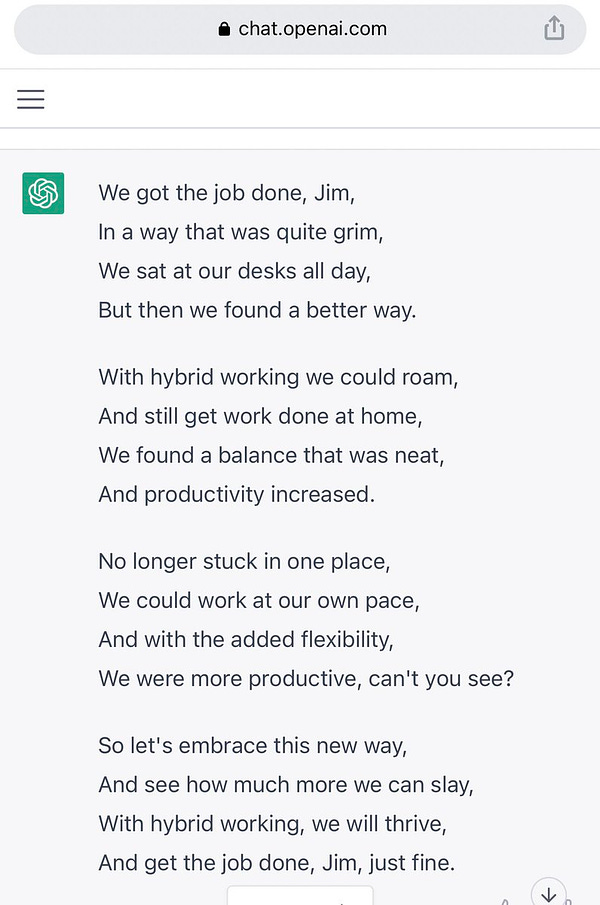
I used it for counselling because my therapist was away https://benalexander.substack.com/p/using-ai-as-a-therapist